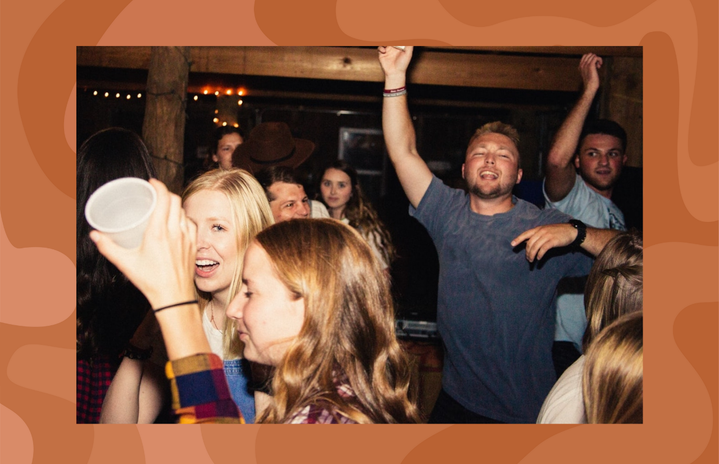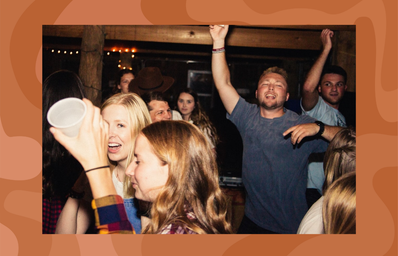A few months ago, I was talking with some of my male friends, and one of them was telling a story about a party he attended the night before, and how he went home with a girl and blacked out in the middle of the hookup. This got a few laughs from the other guys, but I was horrified. Despite being severely intoxicated—to the point of memory loss—he still engaged in sexual activity with someone, and it didn’t strike anyone else as problematic, but rather was praised and even joked about.
Whether you choose to participate in it or not, college hookup culture is inevitable; its lingering presence seldom goes unnoticed. And like pretty much everything else, it follows a strict social script. First, there’s the pregame. Its purpose: to get you drunk enough to let go of any inhibitions you would otherwise have sober. Then, you arrive at the party, and if you’re a woman or a feminine presenting, your entry is gauged by how “hot” you are, which is deemed by the fraternity brothers guarding the door. You shove your way through the crowded clump of people surrounding the bar and grab a drink, and you do this throughout the night. You’re loose, you’re crazier, and you’re more apt to take risks. You’re experiencing the “beer goggles” phenomenon that makes everyone around you significantly hotter. Then, ideally, you meet a sexy stranger on the dance floor, initiate contact, and go home with them.
Without a doubt, college hookup culture puts heavy emphasis on partying and intoxication. Within hookup culture, specifically among college undergraduate students, alcohol consumption is not just encouraged but rather expected, and the more the better. For instance, I was recently at a party with this girl who told me she was going to a guy’s house later that night but was putting it off because she “wasn’t drunk enough yet.” Despite alcohol’s known negative impact on judgment and decision-making, it is integral to the social script of college hookups. This is incredibly concerning for a number of reasons. The biggest one is that one cannot technically consent to any sort of sexual act while under the influence. Additionally, alcohol impairs frontal-lobe processes, so an individual might do something they would not be comfortable doing sober and regret it the next morning. Or worse, one may be so inebriated that they’re not even cognizant of what they’re doing or who they’re doing it with. Situations like this happen regularly in the college hookup scene because it has become so intertwined with parties and booze.
The second to last step of the college hookup script, initiation, also disregards the idea of consent fairly often. It has become normal for men to approach women at parties from behind and start grinding with them and touching them. This approach, which has been falsely framed as sexy and exhilarating is something actually quite creepy and invasive, as it places little to no regard on women and feminine presenting individuals’ right to accept or reject another person’s (specifically a man’s) advances.
Sure, hookup culture can be empowering for some, as it takes much of the stigma away from casual sex, especially for women. However, it has its dangers, and its close connectivity to intoxication often borders on a lack of consent. The label “hookup culture” is more often than not a veil for the underlying rape culture that persists throughout college campuses. For the safety of female and feminine presenting undergraduate students, this problematic component of college hookups must be further analyzed and ultimately reconstructed.




